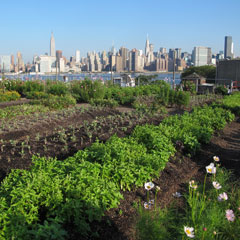Friday, March 24.
2 – 4 p.m.
Humanities Institute
LuEsther T. Mertz Library
New York Botanical Garden
As one of society’s most critical infrastructures, the food system must continuously evolve to meet the demands of a growing and increasingly urbanized population.
- How can we sustainably feed the cities of today and the distant future?
- How can we ensure that scientific and technological innovations in the food system lead to shared benefits for all?
This colloquium speaks directly to these key questions, bringing together scholars and practitioners with areas of expertise that traverse plant biology, agriculture and design, and economics and consumer behavior. The conversation explores case studies in both the developed and developing world, considering the futures of food, technology, and the city – from seed to field to table.
View Program
2 p.m. Welcome and Introduction
Shelby White and Leon Levy Reading Room
LuEsther T. Mertz Library
6th floor Library Building
Hosts:
- Vanessa Bezemer Sellers, Humanities Research Coordinator, NYBG
- Rosemary Wakeman, Professor of History, Coordinator of University Urban Initiatives, Urban Studies Program, Fordham University
- Garrett M. Broad, Assistant Professor Department of Communication and Media Studies, Fordham University
2:15 – 3:30 p.m. Presentations
- Steven Franks, Associate Professor, Department of Biological Sciences, Fordham University. Research on plant genetics in the context of climate change and evolution.
- Elaine Kung, Designer, Blue Planet Consulting. Innovations in urban agriculture and vertical farming, including projects in the South Bronx.
- Andrew Simons, Assistant Professor, Department of Economics, Fordham University. Research in the area of development economics and fuel-efficient cookstoves.
3:45 – 4:15 p.m. Reception
Space is limited, Please RSVP by adding your name to this list.
or contact gbroad@fordham.edu.
Presented by the Humanities Institute of the New York Botanical Garden in collaboration with Fordham University’s Urban Consortium.
Support for the Humanities Institute provided by The Andrew W. Mellon Foundation.
